Who are the new CEO's of tomorrow? Wittenborg's Business Development Advisor, Ben Prins, believes they will be students trained at institutes anticipating the new industrial revolution, Smart Industry, and preparing their students accordingly.![Ben Prins Ben Prins]()
"Eat or be (b)eaten," is Prins' stern warning to governments, companies and institutes of higher education that have until now been slow on the uptake. He believes if they don't act now, their economies will not be fit for the future. "It is unavoidable. ICT is the most important driver for production growth."
Never heard of Smart Industry?
Also called the 4th Industrial Revolution, Smart Industry is essentially the digitisation of industry, the growing use of production technology and a network approach. Think of Robotics, 3D printing and Big Data. In other words, a smarter way to make things.
The Global Information Technology Report 2014 shows that while the Netherlands is doing extremely well in ICT, the adoption of new technology can be improved. It also noted that ICT is being used more and more by companies in their contacts with consumers rather than for business to business transactions.
"People still have only a vague idea of what industrial robots can do for their business," Prins says, who also runs his own consultant company, PMC, in addition to his involvement in getting the education sector - especially universities of applied science - up to speed. "People still think of robots as little animated machines playing with the dog. They don't know that a robot can help you with packaging, in ICT, the health sector and even, not so far in the future, at home."
Is education catering for business needs?
Prins believes the education sector has a crucial role to play in preparing students for the fourth industrial revolution. "We should start in education," he emphasizes.
A few institutions have taken up the challenge, including Wittenborg. It is working on a programme aimed at bridging the gap between the innovators of new technology and business managers. Rapid progress has been made and Prins estimates the programme will be introduced in 2017. "We need people who understand both the technical aspects as well as the management side of smart industry. Many companies have their technical engineers, but the latter do not necessarily have sharp business instincts. Or you have innovators who don't know how to market and sell their own innovations. This is where training institutes like Wittenborg come into play."
Prins also believes it is easier for small institutes like Wittenborg to adapt to the changing needs of industry because they can implement changes quicker and have shorter communication lines. However, he insists that industry must be involved in the shaping of content in education so students are properly equipped for the needs of the labour market once they graduated.
![Martin van der Have Martin van der Have]() After being introduced to Wittenborg by Prins, the Sales and Marketing Manager of ABB Robotics, Martin van der Have, did a Project Week presentation in 2015 at the university giving a fascinating lecture on the use of robotics in industry. ABB is a leading supplier of industrial robots, modular manufacturing systems and service and have worked with Prins since 2008. He, together with Wittenborg's CEO, Maggie Feng, is also working towards a cooperation agreement between Wittenborg and the Robotics Experience Center in Almelo.
After being introduced to Wittenborg by Prins, the Sales and Marketing Manager of ABB Robotics, Martin van der Have, did a Project Week presentation in 2015 at the university giving a fascinating lecture on the use of robotics in industry. ABB is a leading supplier of industrial robots, modular manufacturing systems and service and have worked with Prins since 2008. He, together with Wittenborg's CEO, Maggie Feng, is also working towards a cooperation agreement between Wittenborg and the Robotics Experience Center in Almelo.
More robots, higher unemployment?
Prins thinks there is still a fear lurking in society that as industrial robots are used more and more, it will lead to higher unemployment. "Especially the unions have trouble with that. But they are wrong." The Smart Industry Report, which explains Smart Industry in the Dutch context, predicts that although automation might lead to initial job reduction, it will not necessarily mean an overall reduction. "History tells us that an increase in labour productivity, tends to lead to additional jobs in other places. Like the manufacturing of the robots that facilitates the automation. A recent ITIF study predicts an increase of about 150 000 jobs in this sector in the US market alone.
"What is certain is that not acting on the opportunities that Smart Industry offers, is very risky. If no action is taken, the Netherlands will lose its competitive innovative advantage. Industrial activities will be shifted to other regions in the world that are more suited to competing on labour costs, resulting in job losses. What is also to be expected is a shift in the demand for the type of worker in the Smart Industry. Although semi-skilled personnel will still be needed, it is expected that fewer of these jobs will be required. Our industry is already facing a shortage in the supply of highly skilled technical workers. Education also does not seem to fit the requirements of the manufacturing industry," the report reads.
Source: http://www.smartindustry.nl/eng/
WUP 18/2/2016
by Anesca Smith
©Wittenborg University Press
![International Students Continue Privileged Access to Dutch Labour Market in 2016 International Students Continue Privileged Access to Dutch Labour Market in 2016]() International Students Continue Privileged Access to Dutch Labour Market in 2016
International Students Continue Privileged Access to Dutch Labour Market in 2016.jpg) What is it like to work in a 5-star hotel with its lavish suites and immaculate service? A growing number of Wittenborg's hospitality students are doing internships at top hotels around the world. One of them is Thiago Silva, who recently completed a work placement at the 5-star
What is it like to work in a 5-star hotel with its lavish suites and immaculate service? A growing number of Wittenborg's hospitality students are doing internships at top hotels around the world. One of them is Thiago Silva, who recently completed a work placement at the 5-star .jpg) Dutch National Student Union, LSVb, has warned Dutch universities have become too picky in admitting students to their master's programmes. The union has subsequently written to the Education Minister, Jet Bussemaker, and the Dutch universities’ association, VSNU.
Dutch National Student Union, LSVb, has warned Dutch universities have become too picky in admitting students to their master's programmes. The union has subsequently written to the Education Minister, Jet Bussemaker, and the Dutch universities’ association, VSNU.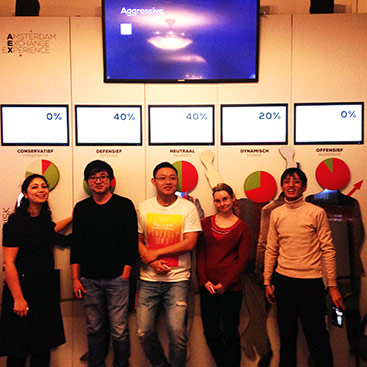
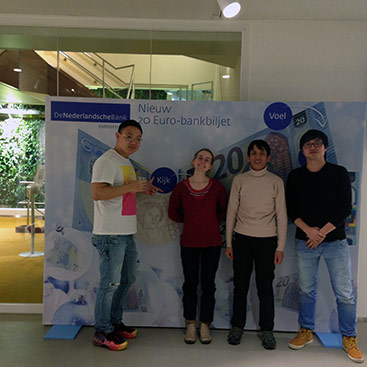
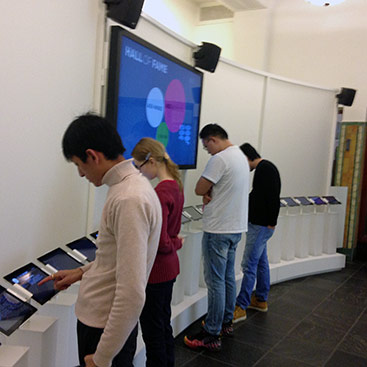
 Wittenborg University has been announced as the first institute of higher education to be a supporting partner of
Wittenborg University has been announced as the first institute of higher education to be a supporting partner of .jpg) Wittenborg University will welcome more than 40 new undergraduate and postgraduate students from a whole host of countries in Block 5 when classes start on Monday. Today about half of those attended the first day of Introduction Week activities which will continue tomorrow. The rest is expected to arrive over the weekend and at the start of next week.
Wittenborg University will welcome more than 40 new undergraduate and postgraduate students from a whole host of countries in Block 5 when classes start on Monday. Today about half of those attended the first day of Introduction Week activities which will continue tomorrow. The rest is expected to arrive over the weekend and at the start of next week..jpg) Three of the new students will follow an IBA in Entrepreneurship & Small Business at Wittenborg’s Amsterdam location. Two of them are Dutch. Also among the batch of new students are 5 exchange students from Korea who will study for about 6 months at Wittenborg before returning to Korea. Other nationalities include Russia, Nigeria and Chinese.
Three of the new students will follow an IBA in Entrepreneurship & Small Business at Wittenborg’s Amsterdam location. Two of them are Dutch. Also among the batch of new students are 5 exchange students from Korea who will study for about 6 months at Wittenborg before returning to Korea. Other nationalities include Russia, Nigeria and Chinese..jpg) One of the new students is Sergiu Rue-ionita from Romania who will do an IBA in Tourism. Before moving to the Netherlands with his American wife and baby last October, Sergiu was an Arts teacher in Romania for about 15 years. He holds a Bachelor of Arts degree but says studying tourism was always his big dream.
One of the new students is Sergiu Rue-ionita from Romania who will do an IBA in Tourism. Before moving to the Netherlands with his American wife and baby last October, Sergiu was an Arts teacher in Romania for about 15 years. He holds a Bachelor of Arts degree but says studying tourism was always his big dream..jpg) Another new student is Joseph Isiramen from Nigeria who will do an MBA in Entrepreneurship & Innovation at Wittenborg. “You can study Entrepreneurship at lots of other universities, but what makes Wittenborg’s course special is that it also focuses on Innovation. That is the part that attracted me. Before coming to the Netherlands Joseph did an MSc in International Business in Birmingham in the UK and his BSc degree in Switzerland.
Another new student is Joseph Isiramen from Nigeria who will do an MBA in Entrepreneurship & Innovation at Wittenborg. “You can study Entrepreneurship at lots of other universities, but what makes Wittenborg’s course special is that it also focuses on Innovation. That is the part that attracted me. Before coming to the Netherlands Joseph did an MSc in International Business in Birmingham in the UK and his BSc degree in Switzerland..jpg) Today students had the chance to introduce themselves, their plans and their hobbies before being introduced to the academic system at Wittenborg. They were also given a tour of the university’s two Apeldoorn locations by Wittenborg’s Office Manager, Eva van Herel. The group also had the chance to meet staff and get to know each other at an informal lunch.
Today students had the chance to introduce themselves, their plans and their hobbies before being introduced to the academic system at Wittenborg. They were also given a tour of the university’s two Apeldoorn locations by Wittenborg’s Office Manager, Eva van Herel. The group also had the chance to meet staff and get to know each other at an informal lunch..jpg) Wittenborg’s two programme coordinators, Ms Esther Gitonga and Dr Abdul Rauf, gave students an idea of the academic structure of the programmes. Tomorrow they will learn about the Harvard Reference system as well as attend an Academic English Workshop before completing their English diagnostics test.
Wittenborg’s two programme coordinators, Ms Esther Gitonga and Dr Abdul Rauf, gave students an idea of the academic structure of the programmes. Tomorrow they will learn about the Harvard Reference system as well as attend an Academic English Workshop before completing their English diagnostics test..jpg) The excitement in the air was palpable on Friday as Wittenborg University celebrated its latest cohort of graduates during the 2016 Winter Graduation Ceremony held at the Apeldoorn City Hall.
The excitement in the air was palpable on Friday as Wittenborg University celebrated its latest cohort of graduates during the 2016 Winter Graduation Ceremony held at the Apeldoorn City Hall..jpg) A total of 21 graduates, splendid in their traditional black ceremonial gowns and caps, received their hard-earned diplomas in front of family, friends and academic staff. Among them two received Master of Science degrees and 19 their Bachelor degrees in various specializations.
A total of 21 graduates, splendid in their traditional black ceremonial gowns and caps, received their hard-earned diplomas in front of family, friends and academic staff. Among them two received Master of Science degrees and 19 their Bachelor degrees in various specializations..jpg) The graduates were given a tremendous send off by Wittenborg's Academic Dean, Dr Jacques Kaat, who told them that the significance of the event should not be underestimated. "There are a number of formative moments in a person´s life and this is one of them. The day you left home, and for some of you, decided to go and study in a strange country was another huge decision and a life changer. I bow to you out of respect for having the guts to do that. Can you imagine where you would have been today if you haven´t done that? Where you go after this and what you will do I don't know but I know it will determine the rest of your life. Some of you might end up in a great career, some may have already started one, some may not be sure while others will go on to do a Master degree or a PhD. But whatever you do, don't stop creating these moments when things change. These moments do not just happen. They happen because you create them. Don't get stuck in a rut, don't get bogged down in a boring job or a boring relationship or in a place where people tell you what to do.''
The graduates were given a tremendous send off by Wittenborg's Academic Dean, Dr Jacques Kaat, who told them that the significance of the event should not be underestimated. "There are a number of formative moments in a person´s life and this is one of them. The day you left home, and for some of you, decided to go and study in a strange country was another huge decision and a life changer. I bow to you out of respect for having the guts to do that. Can you imagine where you would have been today if you haven´t done that? Where you go after this and what you will do I don't know but I know it will determine the rest of your life. Some of you might end up in a great career, some may have already started one, some may not be sure while others will go on to do a Master degree or a PhD. But whatever you do, don't stop creating these moments when things change. These moments do not just happen. They happen because you create them. Don't get stuck in a rut, don't get bogged down in a boring job or a boring relationship or in a place where people tell you what to do.''.jpg) Jacques Kaat gave an example of the late David Bowie as an example of someone who kept reinventing himself. ''He created more than 9 different personas. Yet, he always managed to stay true to himself. If I could have my life over again, I would insert more of those moments of change, travel more, look out for those opportunities, because life is short...''
Jacques Kaat gave an example of the late David Bowie as an example of someone who kept reinventing himself. ''He created more than 9 different personas. Yet, he always managed to stay true to himself. If I could have my life over again, I would insert more of those moments of change, travel more, look out for those opportunities, because life is short...''.jpg) The keynote address was delivered by Apeldoorn's vice-mayor, Mark Sandmann, who said the city is proud to have a growing contingent of international students and staff in its midst, enriching life in Apeldoorn with its different cultures. He congratulated the students and the university with its many achievements the past year. "For those who are spreading their wings or going back to their own countries, we hope you had a pleasant experience in our city and will go from here as ambassadors of Wittenborg and Apeldoorn."
The keynote address was delivered by Apeldoorn's vice-mayor, Mark Sandmann, who said the city is proud to have a growing contingent of international students and staff in its midst, enriching life in Apeldoorn with its different cultures. He congratulated the students and the university with its many achievements the past year. "For those who are spreading their wings or going back to their own countries, we hope you had a pleasant experience in our city and will go from here as ambassadors of Wittenborg and Apeldoorn."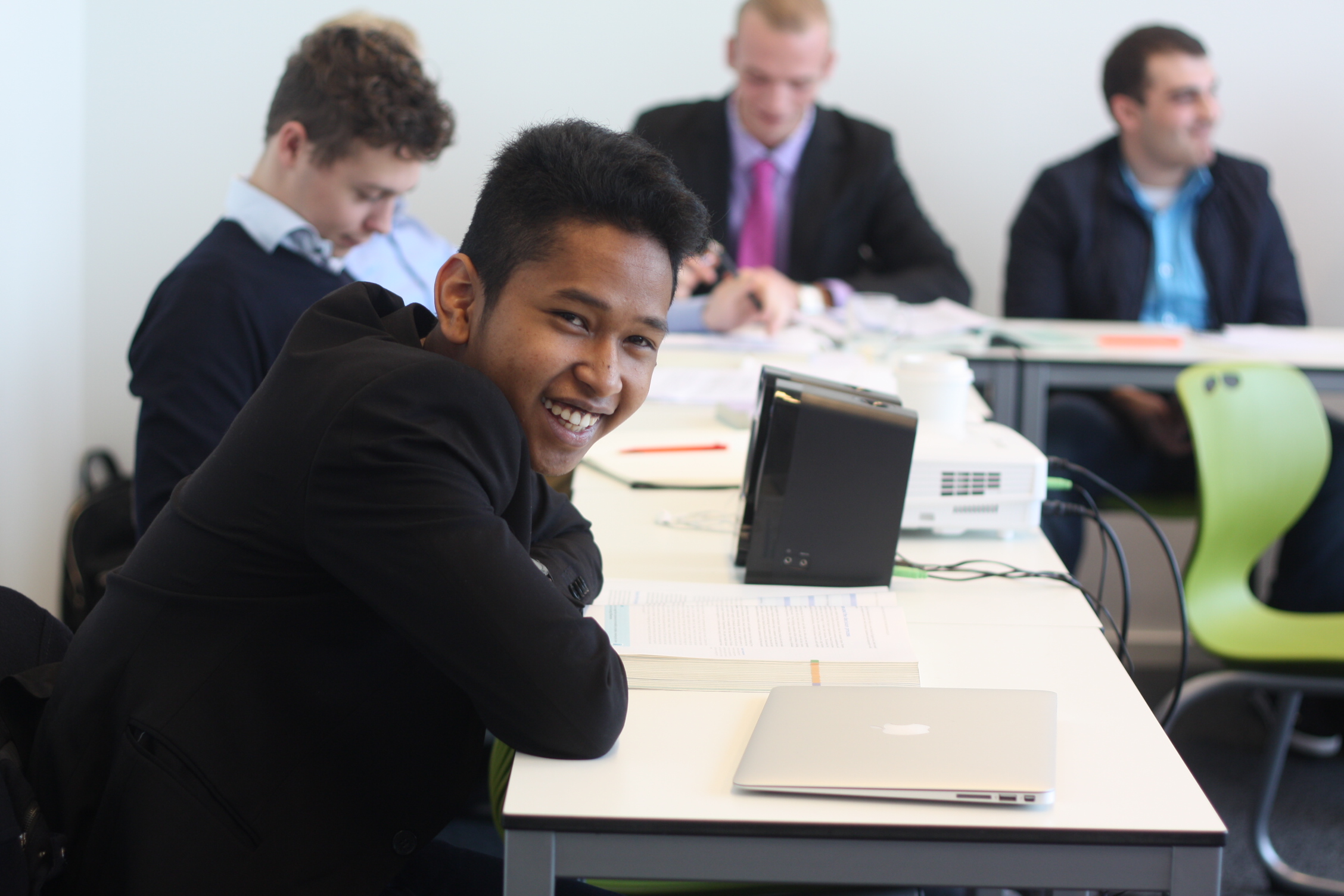 International graduates are not crowding out local jobseekers on the Dutch labour market, research unit Blaauwberg has found. In fact, it warns that without international talent, the Dutch economy will suffer a serious loss in wealth.
International graduates are not crowding out local jobseekers on the Dutch labour market, research unit Blaauwberg has found. In fact, it warns that without international talent, the Dutch economy will suffer a serious loss in wealth.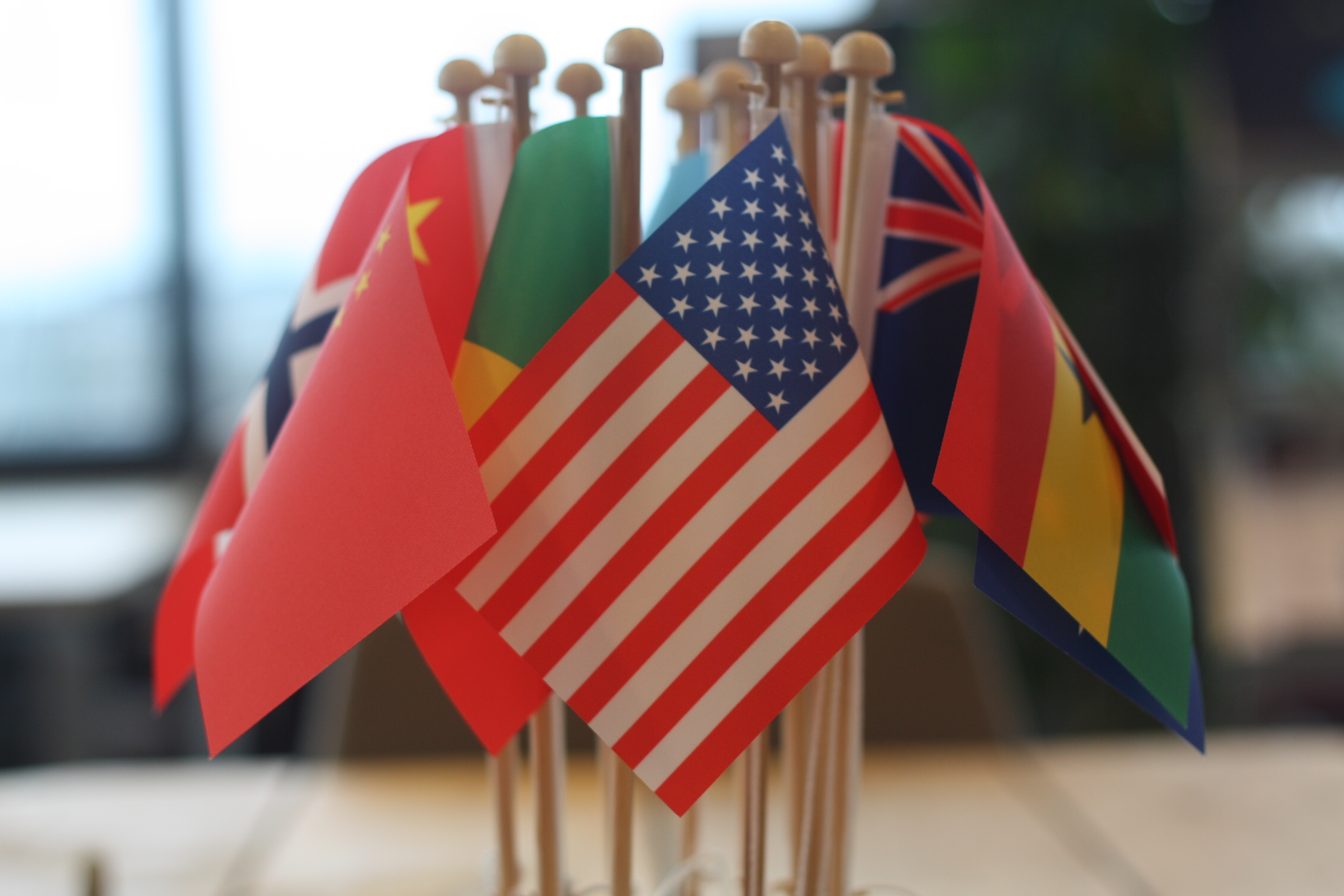 According to Blaauwberg the question is whether internationals feel welcome in the Netherlands and whether SMEs are adequately encouraged to employ them. “Parliamentary debates indicate that the majority of politicians support internationalization of the higher education sector and the labour market. However, conditions around the obtaining of a work permit for non-EU workers signal a red light which limits free access to the job market.”
According to Blaauwberg the question is whether internationals feel welcome in the Netherlands and whether SMEs are adequately encouraged to employ them. “Parliamentary debates indicate that the majority of politicians support internationalization of the higher education sector and the labour market. However, conditions around the obtaining of a work permit for non-EU workers signal a red light which limits free access to the job market.”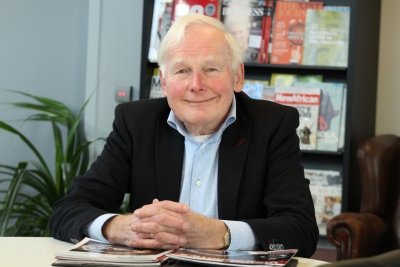
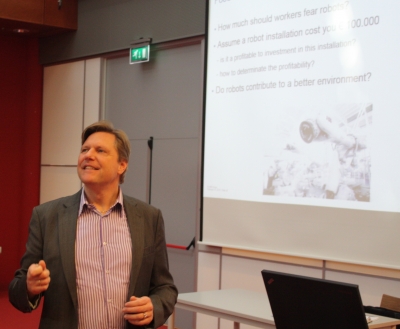 After being introduced to Wittenborg by Prins, the Sales and Marketing Manager of
After being introduced to Wittenborg by Prins, the Sales and Marketing Manager of 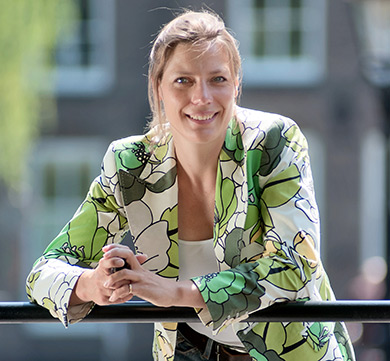 Struggling to find an internship? Meet Wittenborg University’s new Work Placement Coordinator, Adrianne Jonquiere-Breure. While in the past students failing to find a suitable internship were often assisted by their tutors, the function has now become more centralised.
Struggling to find an internship? Meet Wittenborg University’s new Work Placement Coordinator, Adrianne Jonquiere-Breure. While in the past students failing to find a suitable internship were often assisted by their tutors, the function has now become more centralised.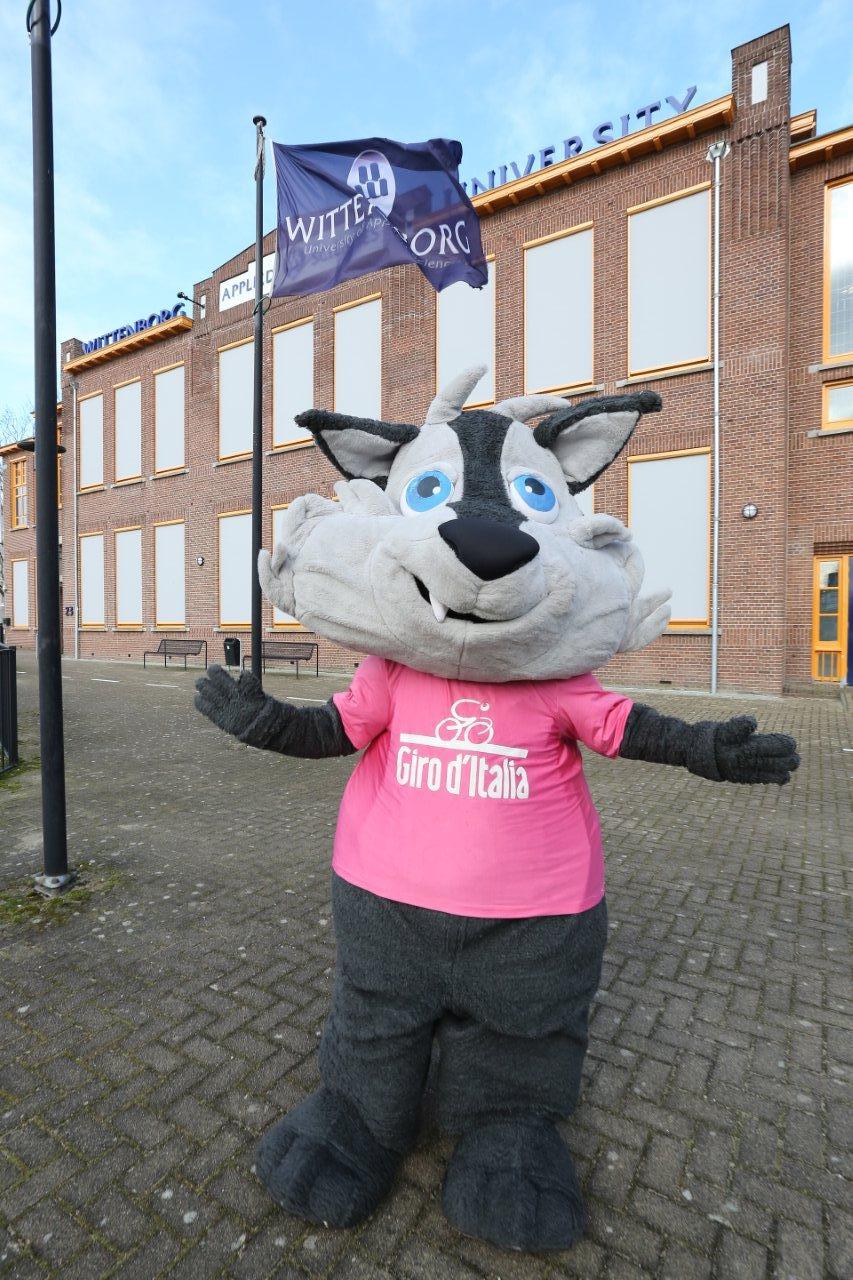 Wittenborg University recently received a very special visitor – Lupo Wolfie, mascot of the Giro d’Italia 2016 which is one of the biggest cycling races in the world. On 6 May the race kicks off in the Velodrome Omnisport in Apeldoorn, the city where Wittenborg is located.
Wittenborg University recently received a very special visitor – Lupo Wolfie, mascot of the Giro d’Italia 2016 which is one of the biggest cycling races in the world. On 6 May the race kicks off in the Velodrome Omnisport in Apeldoorn, the city where Wittenborg is located.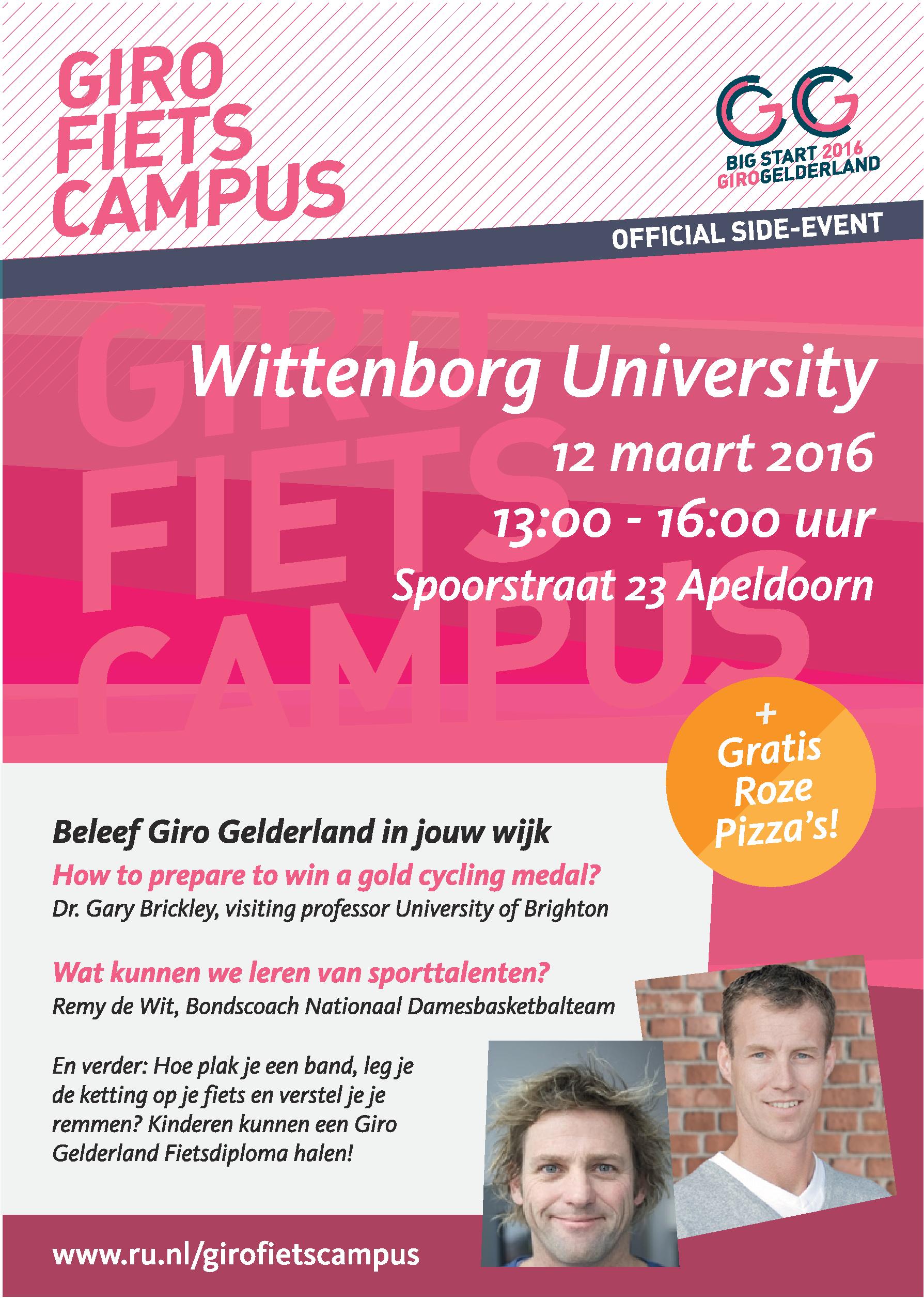 Wittenborg University of Applied Sciences will give cycling enthusiasts a taste of what they can expect when the 2016 Giro d’Italia hits Apeldoorn on 6 May by pre-hosting the 'Giro Fiets Campus' (Fiets is Bycyle in Dutch) on 12 March at its Spoorstraat 23 location in Apeldoorn.
Wittenborg University of Applied Sciences will give cycling enthusiasts a taste of what they can expect when the 2016 Giro d’Italia hits Apeldoorn on 6 May by pre-hosting the 'Giro Fiets Campus' (Fiets is Bycyle in Dutch) on 12 March at its Spoorstraat 23 location in Apeldoorn.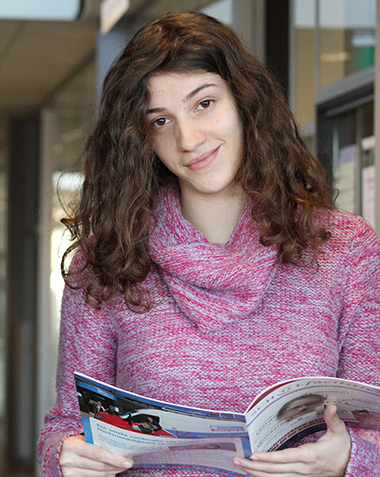 Wittenborg University attracts students from all over the world. The university's only Albanian student, Gertnisa Ristani, was interviewed about life in the Netherlands and what the Dutch government can do to give international students an even better experience.
Wittenborg University attracts students from all over the world. The university's only Albanian student, Gertnisa Ristani, was interviewed about life in the Netherlands and what the Dutch government can do to give international students an even better experience.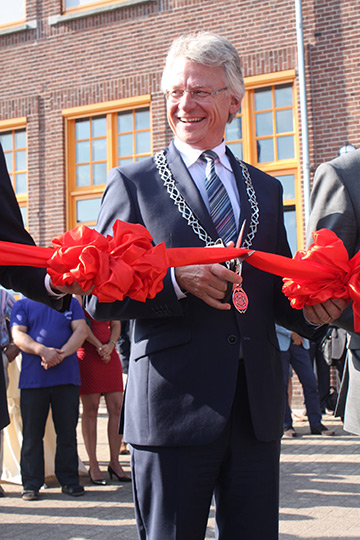 The mayor of Apeldoorn, John Berends, will be one of the speakers at the Giro Fiets Campus hosted by Wittenborg University at its Spoorstraat location this Saturday, 12 March, from 13:00 – 16:00.
The mayor of Apeldoorn, John Berends, will be one of the speakers at the Giro Fiets Campus hosted by Wittenborg University at its Spoorstraat location this Saturday, 12 March, from 13:00 – 16:00..jpg) Giro College Tour: Many Career Opportunities in Sport, say two Top International Coaches on Saturday at the Wittenborg event
Giro College Tour: Many Career Opportunities in Sport, say two Top International Coaches on Saturday at the Wittenborg event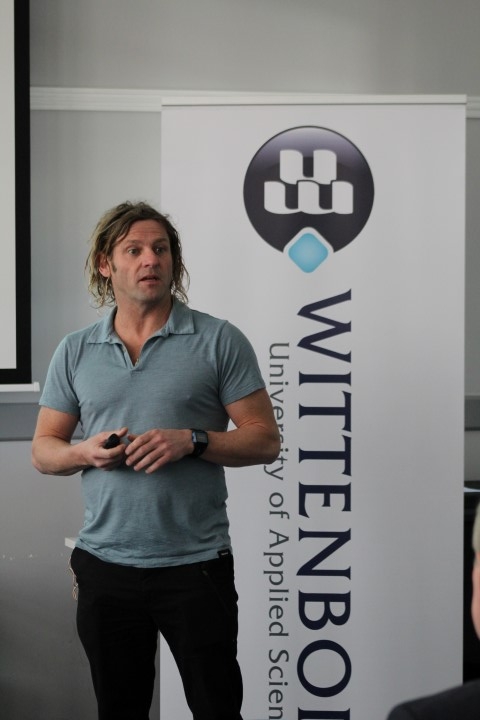
.jpg) The event also served as an introduction to Wittenborg’s new MSc in Sport Business & Management, a programme taught entirely in English for both Dutch and international students. It will be offered from October 2016. According to Wittenborg’s CEO, Maggie Feng, the IBA in Sport Business & Management will lead to the master's degree. The programme is being offered in collaboration with the University of Brighton in the UK. Full-time as well as part-time studies will be possible. Brickley said the continual interest in sport will ensure many interesting career opportunities - including in marketing, sport products and other businesses. De Wit talked about how to prepare athletes from a young age to reach the top. According to him an athlete’s sporting life needs to be balanced with education and lifestyle. With various models and examples he gave a glimpse of an athlete’s life, the difficult decisions they sometimes face and what others can learn from that.
The event also served as an introduction to Wittenborg’s new MSc in Sport Business & Management, a programme taught entirely in English for both Dutch and international students. It will be offered from October 2016. According to Wittenborg’s CEO, Maggie Feng, the IBA in Sport Business & Management will lead to the master's degree. The programme is being offered in collaboration with the University of Brighton in the UK. Full-time as well as part-time studies will be possible. Brickley said the continual interest in sport will ensure many interesting career opportunities - including in marketing, sport products and other businesses. De Wit talked about how to prepare athletes from a young age to reach the top. According to him an athlete’s sporting life needs to be balanced with education and lifestyle. With various models and examples he gave a glimpse of an athlete’s life, the difficult decisions they sometimes face and what others can learn from that.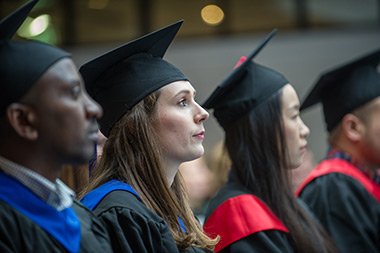 The Netherlands proved its universities are some of the best in Europe by getting a high rating in the recently released
The Netherlands proved its universities are some of the best in Europe by getting a high rating in the recently released 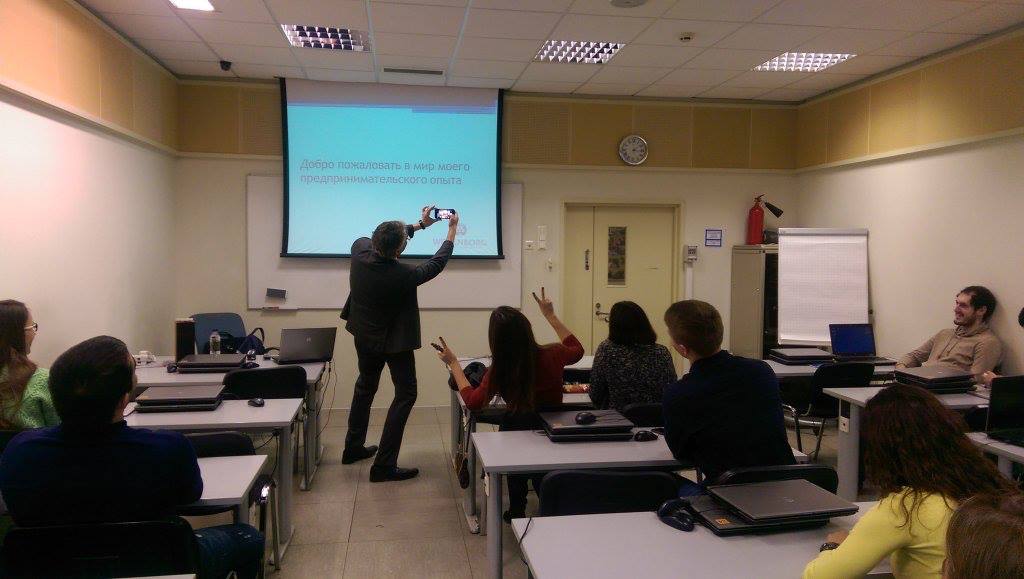 Wittenborg University of Applied Sciences is this week in Moscow, attending the ICEF workshop. Yesterday, WUAS director Peter Birdsall entertained students of the Moscow State University Business School with a presentation on his entrepreneurial experience, entitled in Russian, 'Добро пожаловать в мир моего предпринимательского опыта'. (Pronounced Dabro pazhalovat v mir mayevo predprinimatelskovo opyta) - 'Welcome to my entrepreneurial experience'.
Wittenborg University of Applied Sciences is this week in Moscow, attending the ICEF workshop. Yesterday, WUAS director Peter Birdsall entertained students of the Moscow State University Business School with a presentation on his entrepreneurial experience, entitled in Russian, 'Добро пожаловать в мир моего предпринимательского опыта'. (Pronounced Dabro pazhalovat v mir mayevo predprinimatelskovo opyta) - 'Welcome to my entrepreneurial experience'..jpg) The event was organised by the Netherlands Education Support Office (NESO), whose director Mr Jerke Verschoor accompanied Birdsall throughout the day. In the evening a second 'performance' was given to around 70 visitors at the Russian State Library for Foreign Literature, where NESO Russia is located.
The event was organised by the Netherlands Education Support Office (NESO), whose director Mr Jerke Verschoor accompanied Birdsall throughout the day. In the evening a second 'performance' was given to around 70 visitors at the Russian State Library for Foreign Literature, where NESO Russia is located.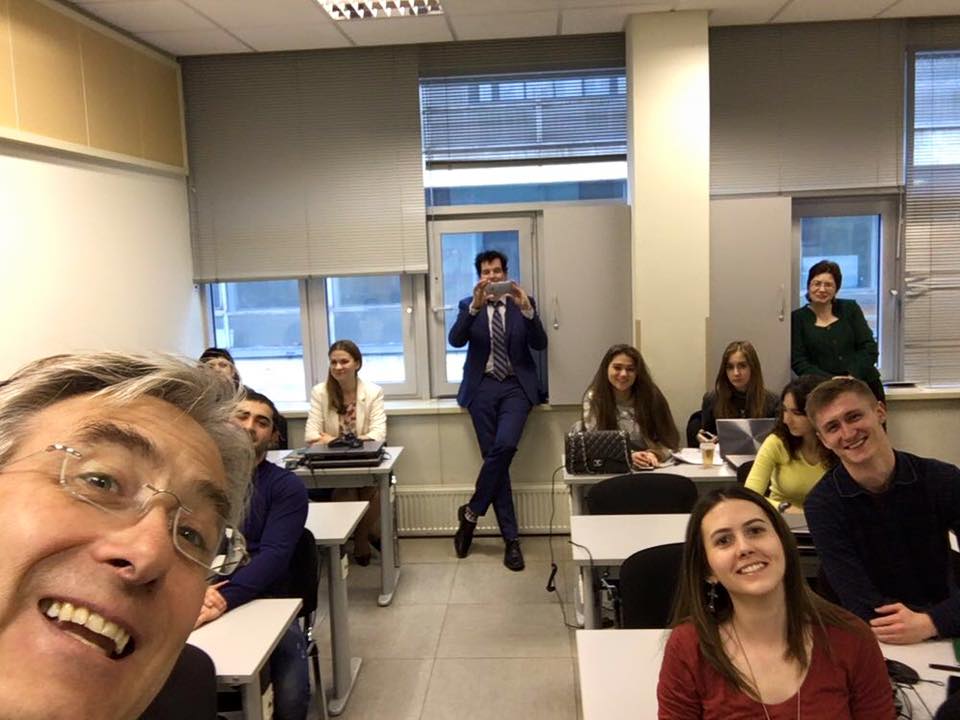 The audience was encouraged to keep their smartphones in hand, and continue to use social media during the presentation, which included several interactive moments. Birdsall asked the participants questions and got them to take pictures and films and post them on social media - all part of sharing the experience.
The audience was encouraged to keep their smartphones in hand, and continue to use social media during the presentation, which included several interactive moments. Birdsall asked the participants questions and got them to take pictures and films and post them on social media - all part of sharing the experience..jpg)
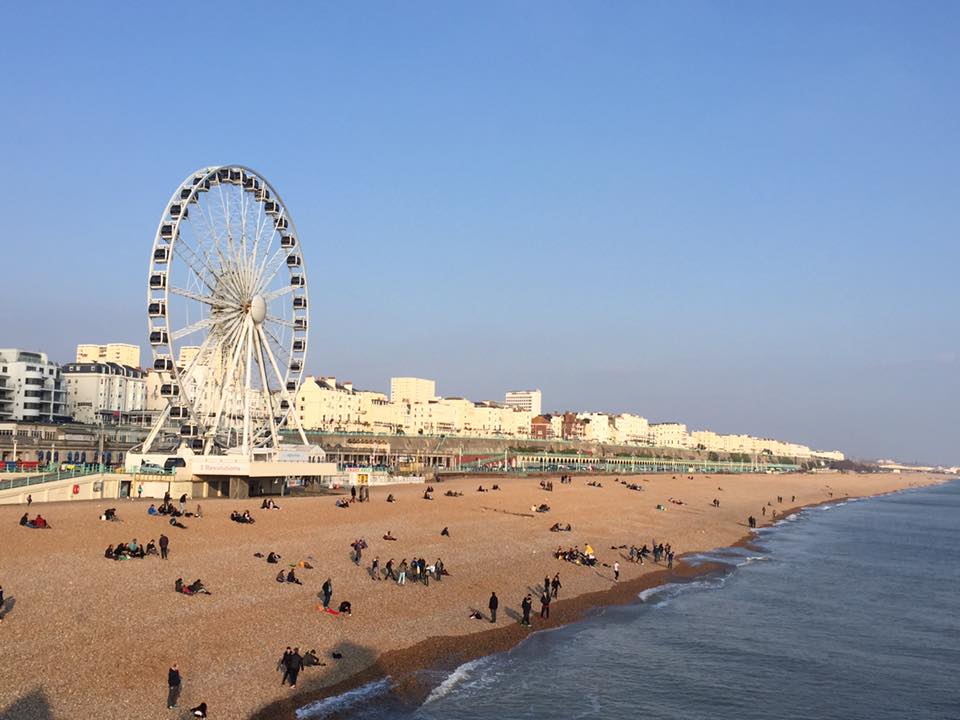 It is one of the highlights on Wittenborg University’s calendar: The annual trip its Master of Science students make to the United Kingdom.
It is one of the highlights on Wittenborg University’s calendar: The annual trip its Master of Science students make to the United Kingdom.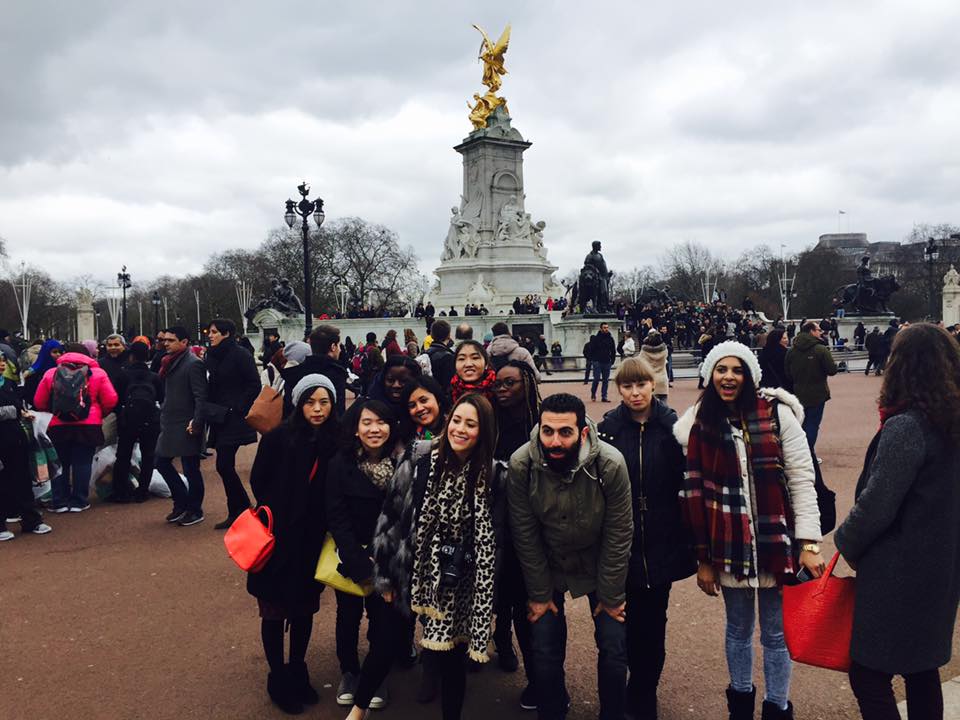 This year 13 students participated in the 4-day trip – excited to see the British capital, London, and to visit the Eastbourne campus of Wittenborg’s main education partner, the University of Brighton. They were accompanied by the coordinator of Wittenborg’s School of Hospitality and Tourism, Esther Gitonga, and event officer, Myra Qiu, who is an MSc student herself, specializing in International Event Management.
This year 13 students participated in the 4-day trip – excited to see the British capital, London, and to visit the Eastbourne campus of Wittenborg’s main education partner, the University of Brighton. They were accompanied by the coordinator of Wittenborg’s School of Hospitality and Tourism, Esther Gitonga, and event officer, Myra Qiu, who is an MSc student herself, specializing in International Event Management.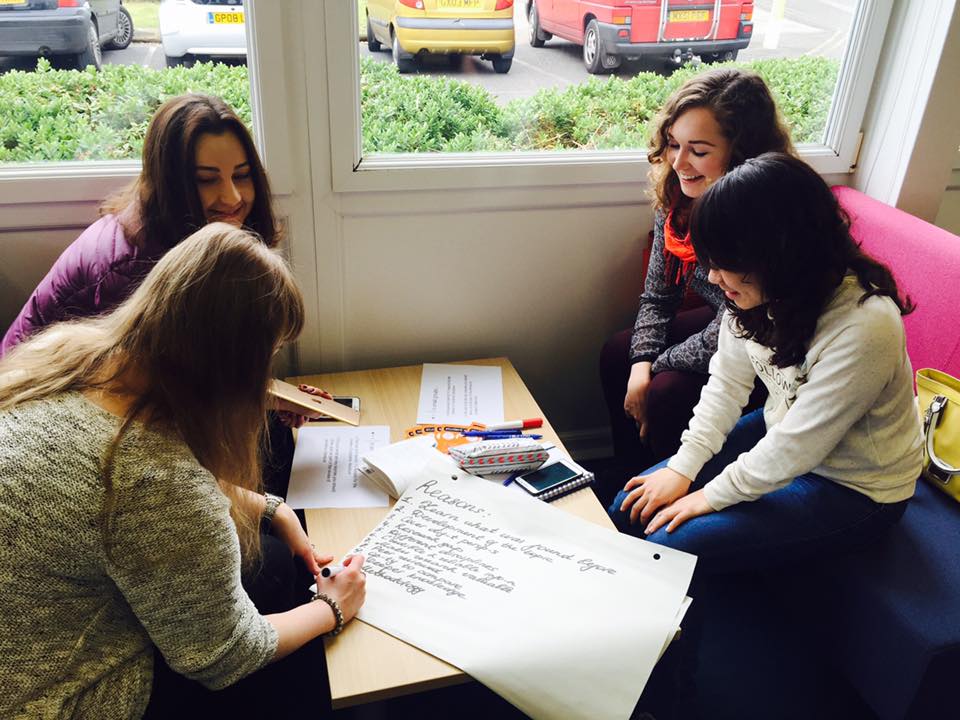 The group arrived early on Thursday at Gatwick Airport, immediately boarding a train for Brighton which is about an hour’s ride south of London. After all the traveling they spent the rest of the afternoon exploring the lovely English seaside town.
The group arrived early on Thursday at Gatwick Airport, immediately boarding a train for Brighton which is about an hour’s ride south of London. After all the traveling they spent the rest of the afternoon exploring the lovely English seaside town. Friday everyone was up early and ready to go to the University of Brighton in Eastbourne where they attended classes, met lecturers and students. In the afternoon to London via Victoria Station were free to explore the London nightlife.
Friday everyone was up early and ready to go to the University of Brighton in Eastbourne where they attended classes, met lecturers and students. In the afternoon to London via Victoria Station were free to explore the London nightlife.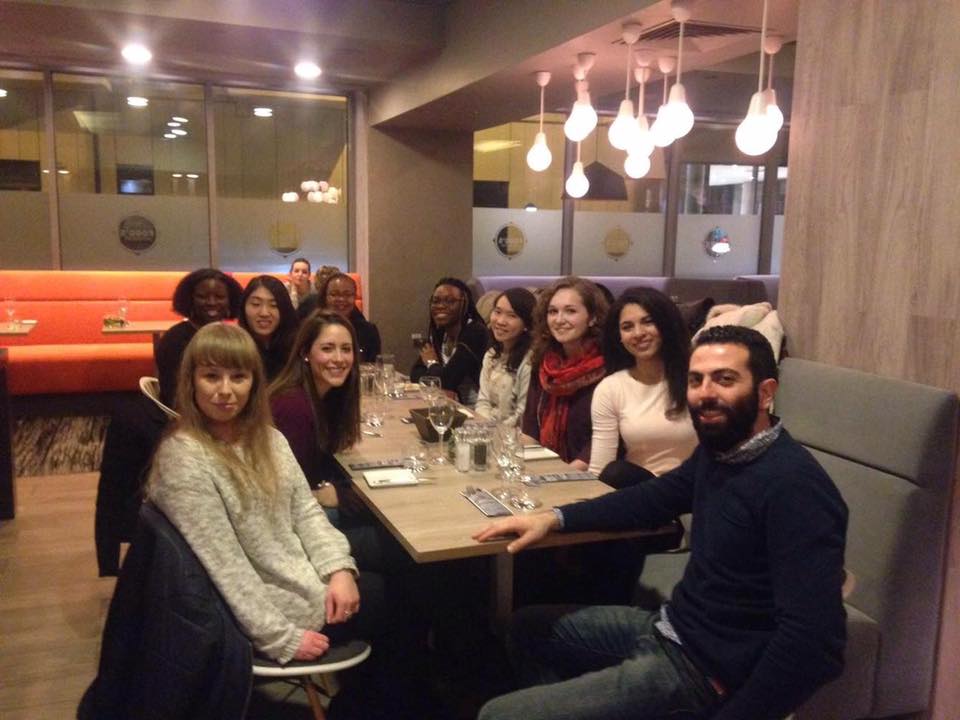 Saturday morning was reserved to take in the great sights that make London one of the top tourist destinations in the world. This included a trip to Buckingham Palace, Westminster to visit the Houses of Parliament and of course gawk at the iconic Big Ben clock tower as well as Westminster Abbey.
Saturday morning was reserved to take in the great sights that make London one of the top tourist destinations in the world. This included a trip to Buckingham Palace, Westminster to visit the Houses of Parliament and of course gawk at the iconic Big Ben clock tower as well as Westminster Abbey.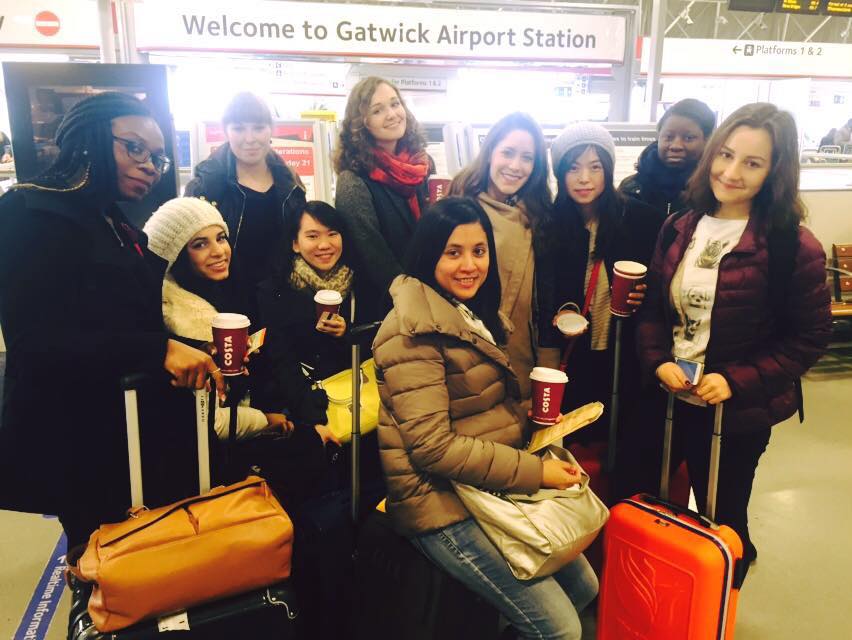 This was followed with a magnificent boat trip on the Thames from Westminster Pier down to the Tower of London, seeing the great London Eye Ferris Wheel in the distance. Of course, no trip to London would be complete without some shopping in Oxford and Regent Street which students were able to do Saturday afternoon.
This was followed with a magnificent boat trip on the Thames from Westminster Pier down to the Tower of London, seeing the great London Eye Ferris Wheel in the distance. Of course, no trip to London would be complete without some shopping in Oxford and Regent Street which students were able to do Saturday afternoon..jpg) As an important education provider for the event industry, Wittenborg University made sure its presence was felt at
As an important education provider for the event industry, Wittenborg University made sure its presence was felt at .jpg)
.jpg) Event16 attracts around 7 500 attendees per year. Wittenborg is seen as a key expert in the provision of knowledge and content in the sector. The university offers a unique 1-year
Event16 attracts around 7 500 attendees per year. Wittenborg is seen as a key expert in the provision of knowledge and content in the sector. The university offers a unique 1-year